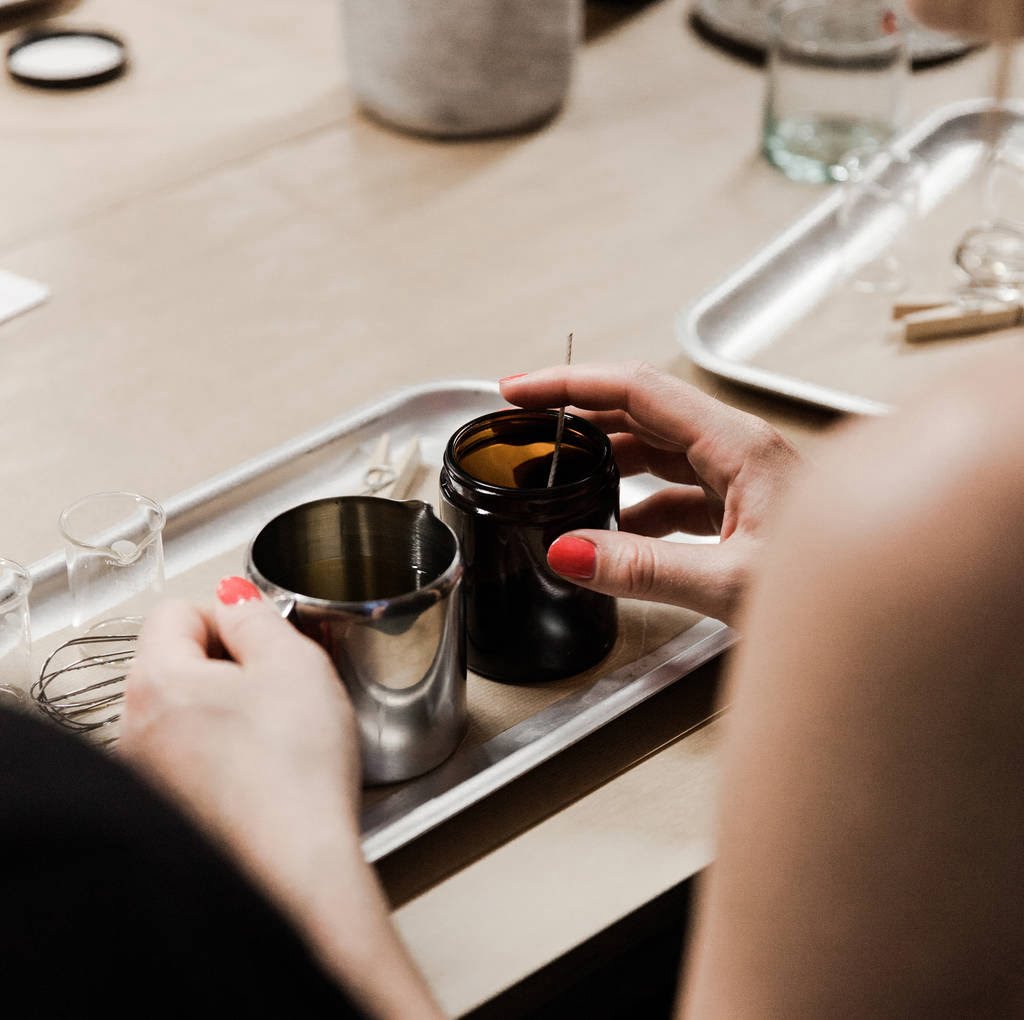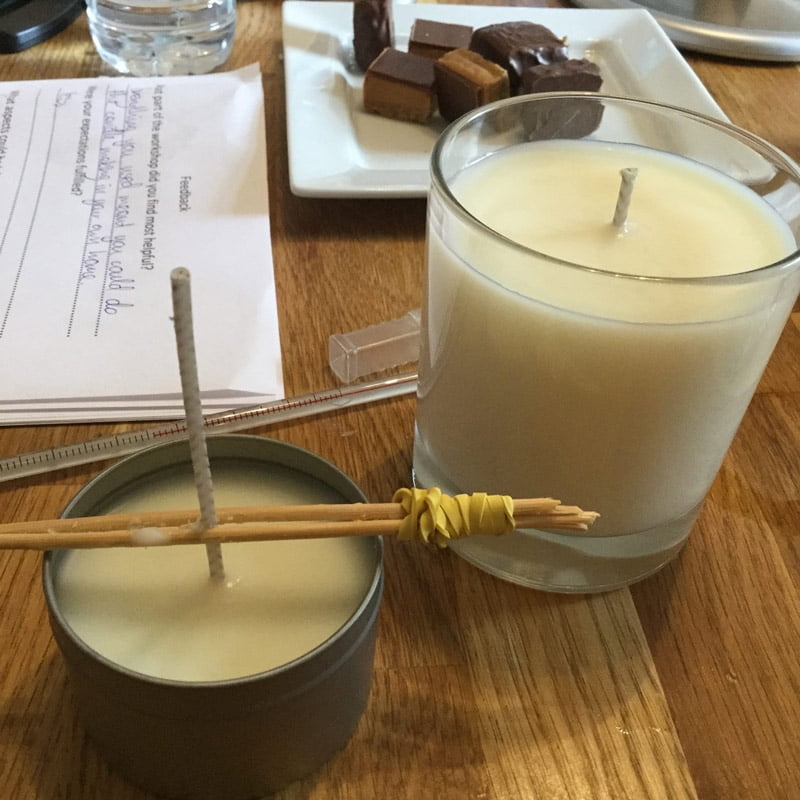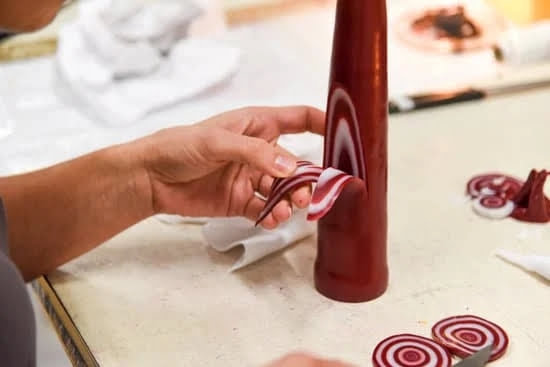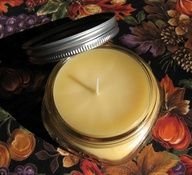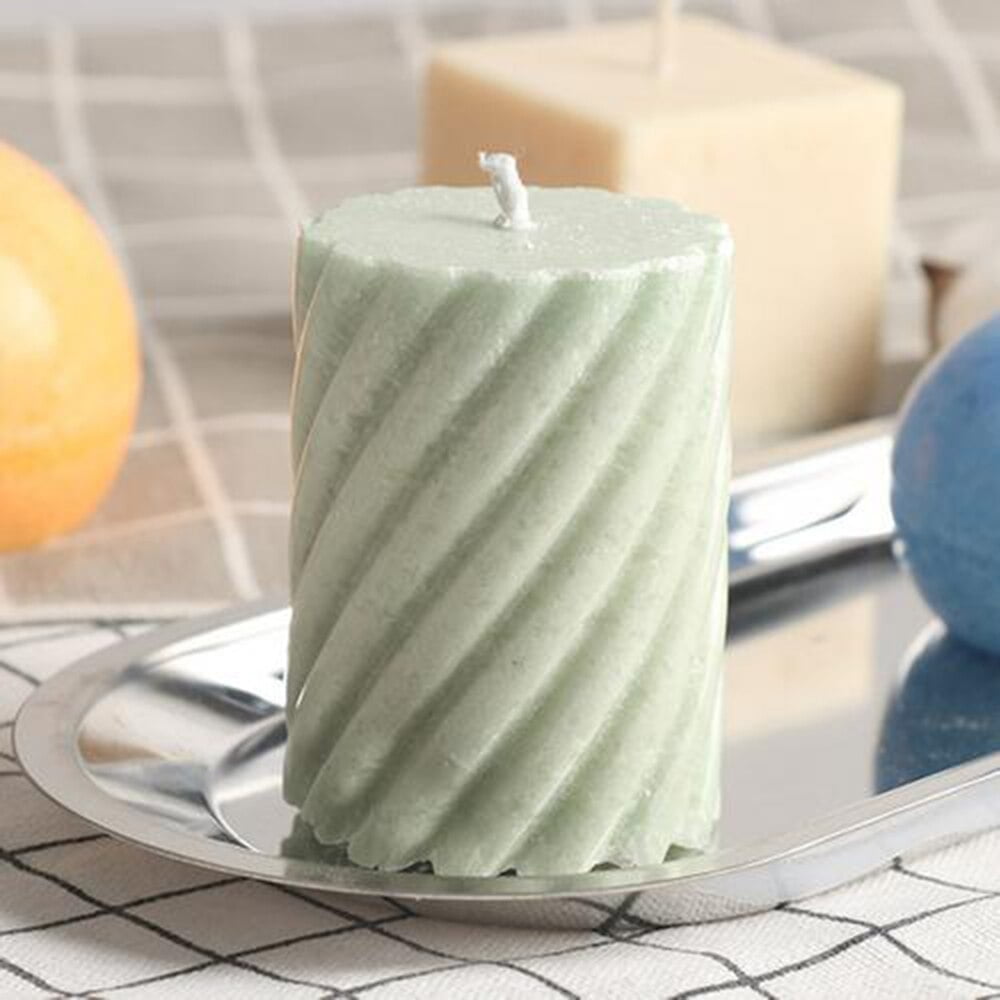Are you interested in delving into the world of candle making? Before you begin crafting your own customized candles, it’s essential to understand the crucial role that temperature plays in the process. In this article, we will explore the significance of temperature in candle making and provide valuable insights into selecting the most suitable thermometer for this creative endeavor.
Candle making is a time-honored tradition that dates back centuries, offering individuals the opportunity to express their creativity while producing beautiful and functional pieces. With a myriad of techniques and styles to explore, mastering the art of candle making requires precision and attention to detail, particularly when it comes to controlling temperatures throughout the process.
Whether you are a novice or experienced candle maker, understanding the impact of temperature on various wax types and fragrance oils is fundamental to achieving optimal results. From choosing the right type of thermometer to effectively utilizing it during each stage of candle making, we will guide you through this essential aspect of the craft. Join us as we unravel the mystery behind selecting the ideal thermometer for candle making and gain valuable insights into elevating your candle crafting experience.
Importance of Temperature in Candle Making
Temperature plays a crucial role in the candle making process, as it can directly affect the quality and outcome of the candles. It is important to maintain the correct temperature at different stages of candle making, such as melting the wax, adding fragrance or color, and cooling the candles. Failure to monitor and control the temperature accurately can result in poor quality candles that may not burn properly or have an uneven texture.
To ensure that you achieve the desired results in your candle making, it is essential to use a reliable thermometer that can accurately measure temperatures throughout the entire process. There are several types of thermometers specifically designed for candle making, each with its own unique features and benefits.
When choosing a thermometer for candle making, it is important to consider factors such as accuracy, ease of use, and durability. Digital thermometers are popular among candle makers due to their precise readings and user-friendly interface. These thermometers typically come with probes that can be inserted directly into the wax for accurate temperature measurement.
Analog thermometers are another option for monitoring temperatures during candle making. These traditional thermometers feature a dial or scale that displays temperature readings and are often used in conjunction with a metal clip to attach to the container holding the wax. While analog thermometers may not offer digital precision, they are still reliable tools for ensuring that the wax is heated to the correct temperature.
Types of Thermometers for Candle Making
When it comes to making candles, temperature control is crucial to ensure that the wax and fragrance oils are at the right temperature for successful candle making. There are various types of thermometers that can be used in the candle making process, each with its own advantages and disadvantages.
Digital thermometers are a popular choice for candle making due to their accuracy and ease of use. These thermometers typically display the temperature digitally and may come with features such as preset temperature alarms or programmable temperature ranges. One of the key benefits of digital thermometers is their quick response time, allowing candle makers to monitor temperature changes in real-time.
Analog thermometers, on the other hand, rely on a traditional liquid-filled or bimetallic strip design to measure temperature. While analog thermometers may not offer the same level of precision as digital thermometers, they are often more affordable and can still provide reliable temperature measurements for candle making tasks.
Another interesting alternative for candle makers is using candy thermometers for monitoring wax temperatures. Candy thermometers are designed to withstand high temperatures and can be easily adapted for use in candle making. However, it’s important to note that not all candy thermometers are suitable for use with wax, so it’s essential to choose one specifically designed for candle making purposes.
It’s crucial for candle makers to consider factors such as accuracy, response time, and durability when choosing a thermometer for candle making. Additionally, understanding how different types of thermometers work and their suitability for specific tasks can help in selecting the right tool for achieving consistent results in candle making projects.
| Type of Thermometer | Advantages | Disadvantages |
|---|---|---|
| Digital Thermometer | Accurate readings, quick response time | May be more expensive |
| Analog Thermometer | Affordable option, reliable measurements | Lack of precision compared to digital options |
| Candy Thermometer | High-temperature resistance, potential cost savings |
Digital Thermometers for Candle Making
Digital thermometers are becoming increasingly popular in candle making due to their accuracy and ease of use. These modern devices provide precise temperature readings, making them a valuable tool for ensuring the quality of your candles. Here are some reasons why digital thermometers are a great choice for candle making:
- Accuracy: Digital thermometers offer precise temperature readings, allowing you to monitor the wax melting process with great accuracy. This is essential for achieving the perfect consistency for your candles.
- Easy to read: Digital thermometers feature clear displays that make it easy to read the temperature at a glance. This is especially helpful when working in a busy and potentially messy candle-making environment.
- Quick response time: Digital thermometers typically have a quick response time, providing real-time temperature updates as the wax heats up or cools down. This allows you to make timely adjustments to achieve the desired results.
When choosing a digital thermometer for candle making, look for features such as a wide temperature range, durable construction, and easy-to-use controls. It’s also important to consider whether you want a waterproof model, especially if you’ll be using it around hot wax or other liquids. Additionally, some digital thermometers come with programmable temperature alerts, which can be handy for maintaining specific temperatures during the candle-making process.
Overall, digital thermometers offer convenience and precision, making them an excellent choice for candle makers who want to ensure consistent results in their craft. By investing in a high-quality digital thermometer, you can take your candle-making skills to the next level while enjoying greater peace of mind throughout the entire process.
Analog Thermometers for Candle Making
Analog thermometers are a popular choice for candle making due to their simplicity and ease of use. These traditional thermometers typically consist of a glass tube filled with a liquid, such as mercury or alcohol, that expands and contracts with temperature changes. Analog thermometers are commonly used for measuring the temperature of wax when making candles.
Advantages of Using Analog Thermometers
One of the main advantages of using analog thermometers for candle making is their accuracy. They provide a precise reading of the temperature, which is crucial when working with wax. Additionally, analog thermometers do not require batteries or electricity to function, making them a reliable and cost-effective tool for candle makers.
How to Use an Analog Thermometer for Candle Making
When using an analog thermometer for candle making, it is important to handle it with care to avoid breakage. Gently insert the thermometer into the melting wax, ensuring that the tip is fully submerged in the liquid. Wait for the temperature to stabilize before taking a reading. Once you have obtained the desired temperature for your candle recipe, remove the thermometer from the wax and wipe it clean before storing it away.
Overall, analog thermometers are a practical and affordable option for monitoring temperatures during candle making. Their durability and accuracy make them ideal tools for both beginner and experienced candle makers alike. Despite the availability of digital alternatives, many prefer the simplicity and reliability of analog thermometers when creating their homemade candles.
Candy Thermometers as an Alternative for Candle Making
When it comes to making candles, maintaining the right temperature is crucial for the success of your project. While there are specific thermometers designed for candle making, some crafters also opt to use candy thermometers as an alternative. In this section, we will explore the use of candy thermometers in candle making and discuss their effectiveness in achieving the desired results.
What Is a Candy Thermometer?
A candy thermometer is a type of thermometer used to measure the temperature of sugar syrups, which is essential for making candies such as caramels, fudge, and toffees. It typically has a range from 100°F to 400°F (38°C to 204°C) and features a metal probe attached to a heat-resistant handle. The thermometer is designed to withstand high temperatures required for candy making and provides accurate readings for precise results.
Effectiveness in Candle Making
While candy thermometers are not specifically designed for candle making, they can still be effective in monitoring the temperature of wax during the melting and pouring process. The temperature range of most candy thermometers aligns with the recommended melting points of various types of wax used in candle making, making it suitable for this purpose.
Additionally, using a candy thermometer can help ensure that the wax reaches the optimal temperature without overheating, which can affect the quality and appearance of the finished candles.
Considerations When Using Candy Thermometers
When using a candy thermometer for candle making, it’s important to consider its size and design. Opt for a thermometer with a long metal probe that can reach deep into the melting pot or double boiler to accurately measure the temperature of the wax.
Additionally, make sure that the thermometer is clean and calibrated before each use to guarantee accurate readings. While candy thermometers can serve as an alternative for measuring temperature in candle making, crafters should still exercise caution and follow proper safety protocols when working with hot wax.
By considering these factors, crafters can determine whether using a candy thermometer is a suitable option for their candle-making endeavors.
How to Choose the Right Thermometer for Candle Making
When it comes to choosing the right thermometer for candle making, there are a few key factors to consider. The first thing to think about is the type of wax you will be using for your candles. Different types of wax require different temperature ranges for melting and pouring, so it’s important to choose a thermometer that can accurately measure within these specific temperature ranges.
Another important consideration is the type of candle making process you will be using. For example, if you will be making pillar candles, you may need a thermometer with a longer probe to reach the bottom of your mold, whereas if you will be making container candles, a shorter probe may suffice.
In addition to considering the specific needs of your candle making process, it’s also important to think about the reliability and accuracy of the thermometer. Look for a thermometer that is specifically designed for candle making or one that has received positive reviews from other candle makers. A reliable and accurate thermometer will help ensure that your candles turn out exactly as intended.
Ultimately, the right thermometer for candle making will depend on your individual needs and preferences. Whether you choose a digital thermometer for its precision and ease of use, an analog thermometer for its durability, or even a candy thermometer as an alternative option, ensuring that it meets the specific requirements of your candle making process is crucial. By taking the time to carefully select the right thermometer, you can set yourself up for successful and enjoyable candle making experiences.
Tips for Using a Thermometer in Candle Making
When it comes to making candles, monitoring and controlling the temperature during the wax melting and pouring process is crucial for achieving the perfect result. Using a thermometer in candle making is essential to ensure that the wax reaches the right temperature for fragrance incorporation and pouring. Here are some tips for using a thermometer in candle making to help you create beautiful and fragrant candles.
Firstly, it’s important to choose the right type of thermometer for candle making. Digital thermometers are highly recommended for their accuracy and ease of use. They provide quick and precise temperature readings, allowing you to monitor the wax temperature closely throughout the entire candle making process. Analog thermometers can also be used, but they may not offer the same level of accuracy as digital ones.
When using a digital thermometer for candle making, it’s important to clean and sanitize it before each use to prevent any contamination of your wax. Additionally, make sure to calibrate your thermometer regularly to maintain its accuracy. This will ensure that you are getting reliable temperature readings every time you use it, resulting in consistent and high-quality candles.
Another tip for using a thermometer in candle making is to handle it with care. Avoid dropping or exposing your thermometer to extreme temperatures, as this can affect its accuracy and functionality. It’s also important to store your thermometer properly when not in use, keeping it away from direct sunlight or heat sources which could cause damage.
Conclusion and Recommendations for Thermometers for Candle Making
In conclusion, choosing the right thermometer for candle making is crucial in ensuring the success of your projects. The temperature plays a key role in the quality and consistency of your candles, so investing in a reliable thermometer is essential. Whether you opt for a digital thermometer, an analog one, or even a candy thermometer as an alternative, it’s important to carefully consider your specific needs and preferences when making your choice.
When selecting a thermometer for candle making, it’s important to prioritize accuracy and ease of use. Look for thermometers that are specifically designed for candle making, as they will provide the most accurate readings and make the process smoother. Additionally, consider factors such as durability and temperature range to ensure that your chosen thermometer will withstand the demands of candle making.
In addition to choosing the right thermometer, it’s also important to follow best practices for using it effectively. This includes regularly calibrating your thermometer, avoiding contact with hot wax to prevent damage, and using it at the appropriate stages of the candle making process. By carefully selecting and using a suitable thermometer, you can improve the quality and consistency of your candles, allowing you to enjoy successful results time after time.

Welcome to my candle making blog! In this blog, I will be sharing my tips and tricks for making candles. I will also be sharing some of my favorite recipes.

